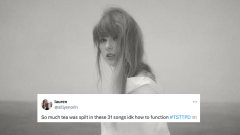
ABC’s Radio National show Life Matters did a great, informative segment yesterday on the proposed ‘cashless welfare card’.
The ABC Facebook page shared the online version of the show, and the post is going mental. The ABC website shows that the segment now has over 21,000 engagements across Facebook.
In case you’re lost; the cashless welfare card is a proposed alternative system to Centrelink payments. People who currently receive unemployment payments would hold a card instead, that allows them to buy food and necessities. The card would block purchases of alcohol, drugs, and gambling.
Why such a large and passionate response? The cashless welfare card is an extremely divisive issue. It separates people who have experienced different lives and classes; and it must be acknowledged that societal privilege can often play a part in lack of empathy. Many believe the cashless welfare card is classist, and denying certain items to certain people is inherently wrong, regardless of what those things are.
On the other side of the coin, many believe that this system could work well, and that the unemployed should not be able to spend ‘government money’ on booze and gambling. While it is extremely true that these items can have very damaging effects, the blanket ban has raised many questions from the public, including:
- Denying certain things to certain people is a slippery slope – could the ban of these things lead to further bans later on for inappropriate reasons? For example, banning certain types of food because they are seen as ‘luxury items’?
- Are cigarettes also banned?
- Are prescription drugs banned? Or are certain prescription drugs banned?
- What about cardholders with addictions? Withdrawal symptoms from alcohol (or any kind of) addiction can sometimes include destructive actions or antisocial behaviour, which may make things worse for the person.
- People from lower socio-economic areas and rural areas are more likely to have alcohol and drug addictions, from 2012 statistics. Doesn’t the card system negatively affect them to a larger extent, just because of where they live?
- In reference to ‘The Prohibition‘, banning items has never really worked, because people still find ways to access them. Wouldn’t it make more sense to focus on the issues of alcohol, drug and gambling addictions, and provide more support and resources to those suffering?
- America’s SNAP ‘food stamp’ system often leads to trading ‘essential’ items for drugs and alcohol – wouldn’t the implementation of a similar system here lead to the same thing?
- How on earth would someone buy drugs with a card anyway?
- There are certain things (especially in schools, such as mufti days and excursions) that have to be paid in cash. What is a family supposed to do in that situation?
- Would cardholders be limited in where they shopped? Would only major shops and companies accept the card?
- If so, wouldn’t this affect local and small businesses, who were recently singled out for more support in the Federal Budget?
- If so, what if someone needed to buy a specialty item? For example, a necessary health item from a smaller shop?
- What if someone needed to buy a gift?
- What about younger cardholders – wouldn’t this card affect their ability to manage money later in life?
- Isn’t determining the social class of someone with a card degrading?
- Isn’t determining the social class of someone with a card degrading?
- Isn’t determining the social class of someone with a card degrading?
MIC DROP.
Image: Scott Barbour via Getty Images







